A team of Brown University undergraduate students recently presented their innovative emissions reduction plan to members of Rhode Island’s congressional delegation on Capitol Hill. Their plan, the winning submission from IBES' first annual Carbon Reduction Challenge, involves converting short-haul business flights into train trips to significantly cut aviation emissions for a large multinational company. Alongside IBES Director Kim Cobb, the students navigated the capital to discuss their impactful proposal with key legislators, including Senator Sheldon Whitehouse and Representatives Seth Magaziner ’06 and Gabe Amo.
‘Agents for meaningful progress’: IBES students discuss climate solutions on Capitol Hill
A select team of undergraduates presented their ideas for large-scale emissions reductions to Rhode Island’s congressional delegation.
Dynamic coursework, tangible results
The team – Luca Duclos-Orsello ’24, Noah Hallward-Rough ’26, Francisca Saldivar Palacios ’24, and Henry Zamore ’26 – was invited to D.C. after winning the Carbon Reduction Challenge, a final-project-meets-competition amongst the students of EEPS/ENVS 0360: “Solving the Climate and the Carbon Challenge.”
Taught by IBES Director Cobb and DEEPS Professor Emanuele Di Lorenzo, the class asked students to work with each other and with external stakeholders to propose viable plans to reduce millions of pounds of emissions and provide thousands of dollars in cost savings. These proposals for large-scale environmental interventions involved partners ranging from wineries to multinational corporations.
“ We know that significant, low-hanging opportunities exist for scalable emissions reductions projects, and persuasion is more effective than punishment. IBES students are powerful agents for meaningful progress in the climate solutions arena. ”
If fully implemented, the winning team’s project would eliminate one million pounds of carbon dioxide equivalents (CO2e) each year, allow the company to accrue $500,000 in annual savings, and save time and increase productivity for traveling employees, according to Cobb. This was no simple analysis: Students needed to evaluate and analyze a massive database of 22,000 individual travel legs to identify and develop their successful strategy.
Advocacy in action
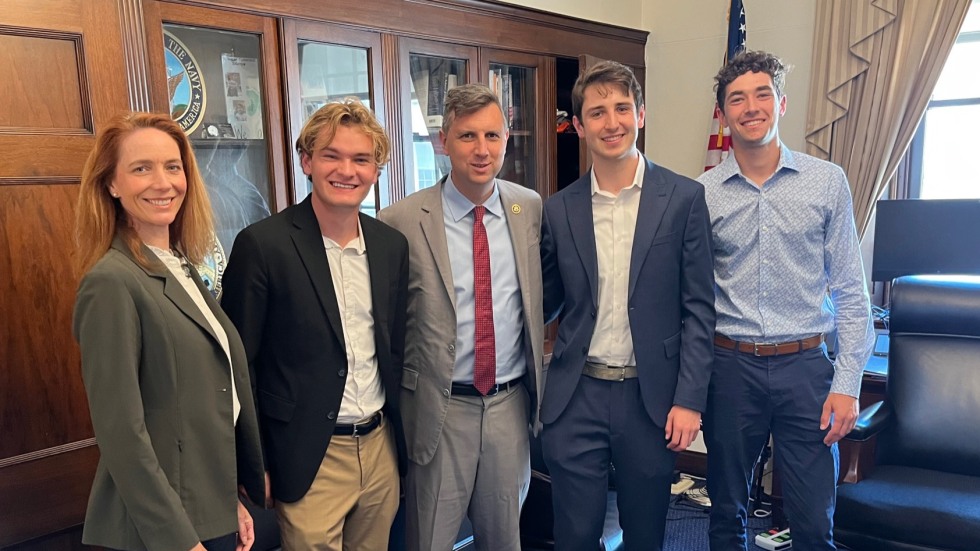
From left to right: Professor Kim Cobb, Noah Hallward-Rough '26, RI Rep. Seth Magaziner '06, Luca Duclos-Orsello '24, and Henry Zamore '26. Magaziner queried the students about the policy implications of their project, noting that he would recommend initiatives that could help the federal government address emissions reductions.
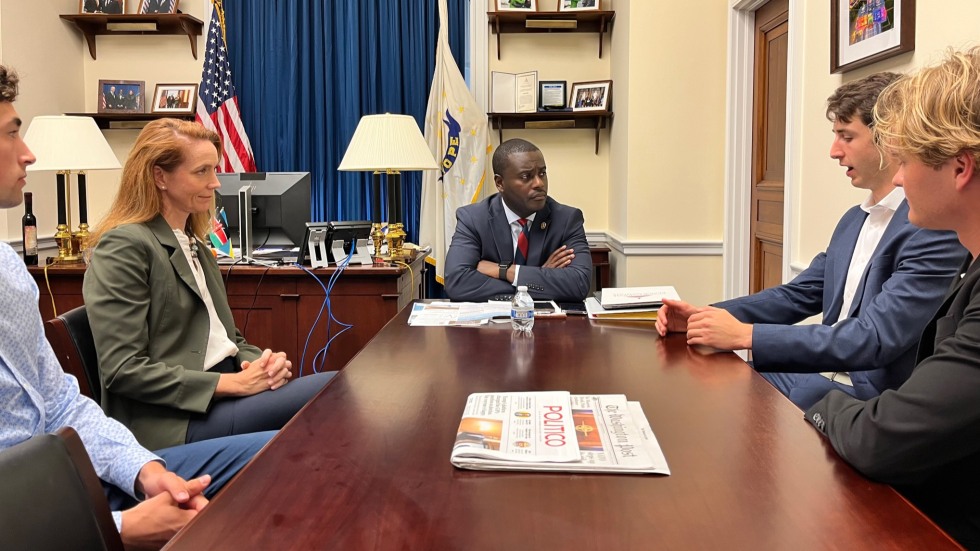
The Brown University team explained the findings from their data to RI Rep. Gabe Amo, center.
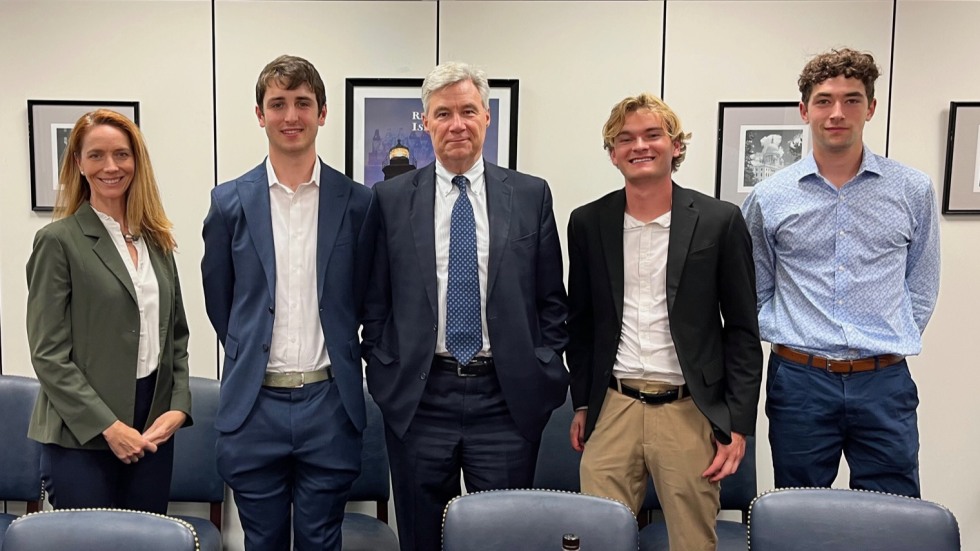
Next up was a meeting with RI Sen. Sheldon Whitehouse, a long-standing advocate for climate-focused policy.
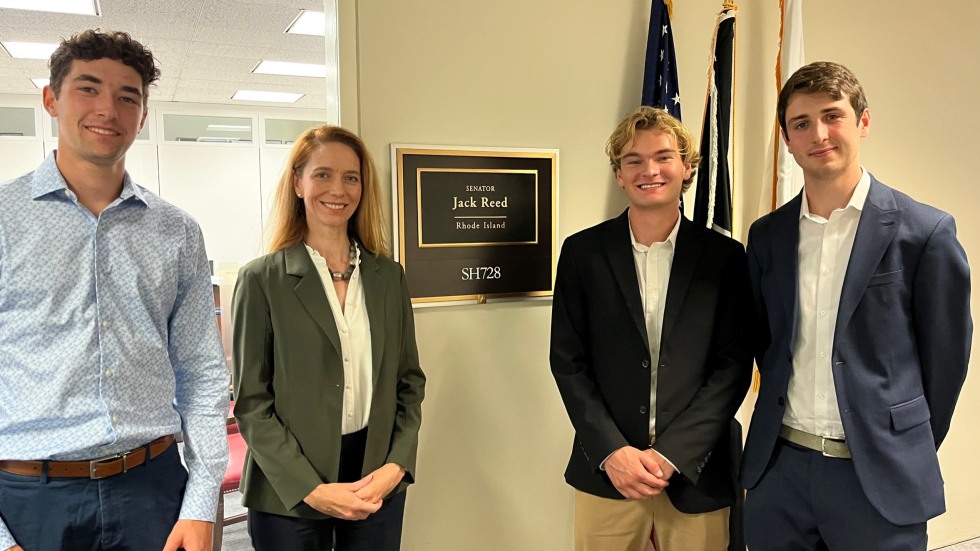
The students also discussed their project with members of RI Sen. Jack Reed’s staff.
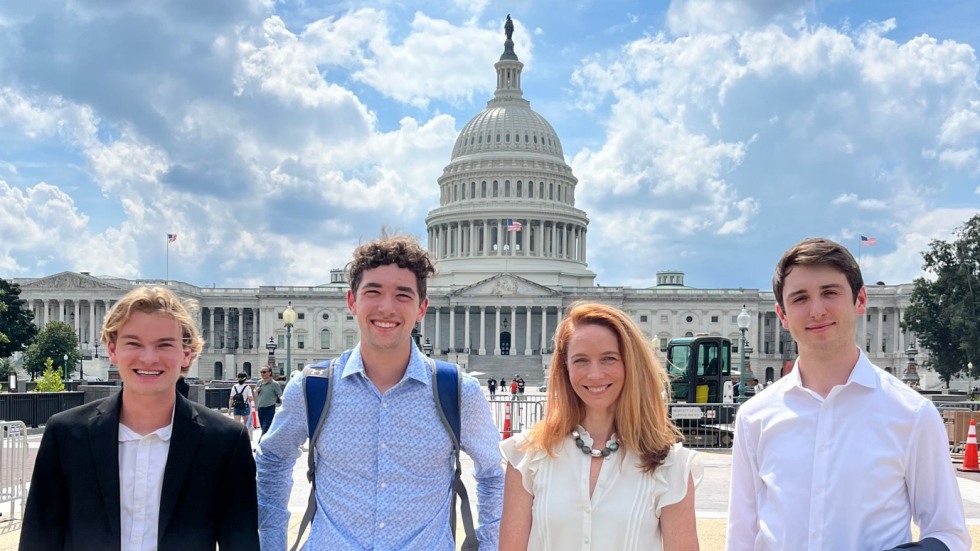
The team finally had a moment to relax in front of the U.S. Capitol after a whirlwind day meeting with members of Rhode Island’s congressional delegation.
In addition to visiting every Rhode Island congressional office, the team also met with Senator Angus King of Maine to discuss IBES’ new Community-Driven Coastal Climate Research and Solutions hub (3CRS), for which the Gulf of Maine Research Institute is a partner.
"It was both fascinating and fulfilling to take our Carbon Reduction Challenge plan to D.C.," Duclos-Orsello said of the trip. "Discussing our work with lawmakers allowed us to examine the intersections of climate science and policy action at the national level."